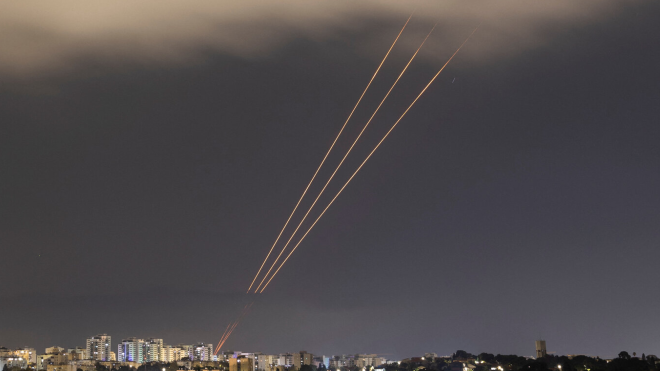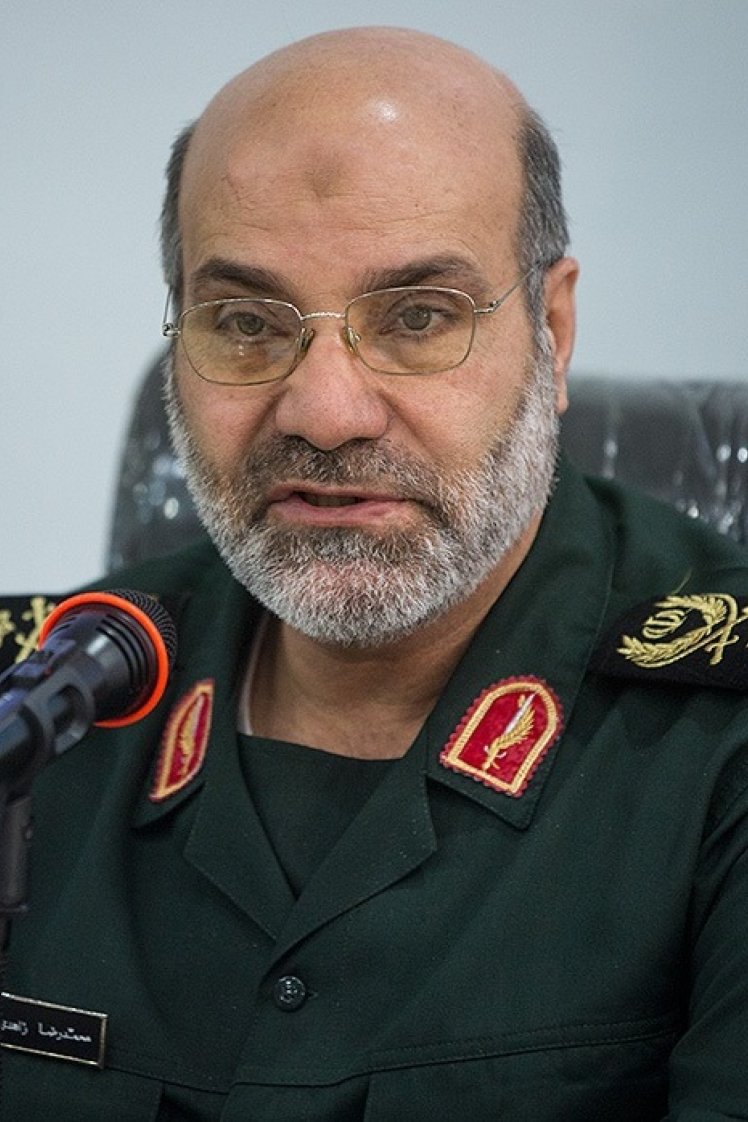On the eve of the shelling, the US warned the population of Israel, and the countryʼs government was preparing for the strike. American intelligence said that Iran was moving equipment around the country and was probably preparing to attack Israel. The US State Department urged its citizens in Israel to stay in large cities, which are more reliably protected from missile attack by the "Iron Dome".
To better control the situation, the US government sent its officers to Israel to help check readiness for strikes. After the inspection, the Chief of the General Staff of the Israel Defense Forces, Herzi Halevi, said that Israel is ready "for all scenarios."
Iran said the missile and drone attack was in response to a missile attack on its consulate in Syria. On April 1, 2024, two Iranian generals and five officers died in the consulate building in Damascus. Among them was the senior commander of the Islamic Revolutionary Guards Corps, Mohammad Reza Zahedi. This is the highest killed Iranian commander after Qasem Suleimani, who was neutralized by the Americans in 2020.
Iranian general Mohammad Reza Zahedi.
Wikimedia
Iran blamed Israel for the attack. The Israel Defense Forces denied the involvement, although some Israeli officials said that "whoever bombed the embassy had every right to do so." On April 10, 2024, Iranʼs Supreme Leader Ali Khamenei declared that Israel "must be punished." After the assassination of Suleimani, Iran fired ballistic missiles at two American bases in Iraq, but it did not satisfy the radical part of the population. This time, Iranʼs leaders tried to find a middle ground — not to appear weak, but also not to provoke Israel into a major war.
After the shelling, Iran declared that "the issue has been solved" and threatened a much more brutal response if Israel "makes a mistake" again.
On April 14, 2024, the UN Security Council held an emergency meeting at Israelʼs request. Representatives of Iran and Israel accused each other of terrorism. And the representative of the US, Robert Wood, called for Iran to be condemned and said that the Americans were helping Israel only in order to prevent the escalation of the conflict.
On the same day, in a telephone conversation with Israeli Prime Minister Benjamin Netanyahu, Biden tried to restrain the Israeli government from an armed response by Iran. He congratulated Netanyahu on a "great military achievement" but warned that the US would not participate in a retaliatory strike. US Senator Chris Coons recommended that Israel take a "pause" in the conflict with Iran. To demonstrate the unity of the West, Biden consulted with the leaders of the G7 countries. They collectively condemned Iranʼs actions and vowed to increase diplomatic pressure if the country continued to "destabilize the region."
Emergency meeting of the UN Security Council on April 14, 2024.
Getty Images / «Babel'»
US Senator Chris Coons said the best way to contain Iran is to agree on an aid package for Israel, Ukraine and Taiwan. On Sunday, in an interview with Fox News, the Speaker of the US House of Representatives, Mike Johnson, promised to bring the aid bill to Israel to a vote within a week. He also noted that he would "consider options for all of these additional issues." Answering a question about aid to Ukraine, he only mentioned the words of Donald Trump, who offered to provide a monetary loan instead of the promised aid.
Opinions of congressmen were divided. Some insisted on helping not only Israel, but also Ukraine. For example, US National Security Council representative John Kirby said the Iranian strike underscored the need for support and called for the bill to be brought to a vote as soon as possible. Others, like Senators John F. Kennedy and Mitch McConnell, talk only about the Israeli aid package.
Some American politicians, on the contrary, encourage Israel to attack Iran. Trumpʼs former national security adviser, John Bolton, said Israel should attack Iranʼs oil industry, the headquarters of the Islamic Revolutionary Guard Corps, or even destroy Iranʼs nuclear weapons program.
Former Deputy Assistant Secretary of Defense for Special Operations and Counterterrorism William Wexler believes that Israel should destroy Iranʼs military leadership, infrastructure and military brigades.
Israelʼs leadership has been cautious so far. Prime Minister Benjamin Netanyahu said that Israel will defend itself against any threat. Chief of the General Staff of the National Defense Army, Benny Gantz, said that Israel is working to create a regional coalition and strategic alliance against Iran.
Israelʼs national security minister, Itamar Ben-Gvir, spoke strongly and wrote in X that the time had come for a "devastating attack". The Minister of Defense of Israel, Yoav Gallant, also promised that the IDF will definitely respond, but "in a way and time that is convenient for them."
Radical residents of Tehran took to the streets on April 14, 2024 to support Iranʼs attack on Israel.
Getty Images / «Babel'»
Translated from Ukrainian by Anton Semyzhenko.
The US Congress may (finally) agree to an aid package for Ukraine this week, and you can support independent journalism right now: 🔸 in hryvnia, 🔸 Buy Me a Coffee, 🔸 Patreon, 🔸 PayPal: [email protected].

